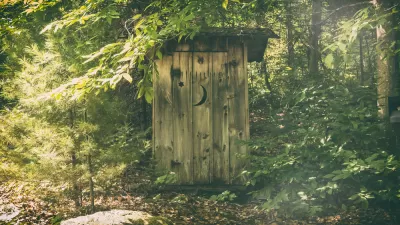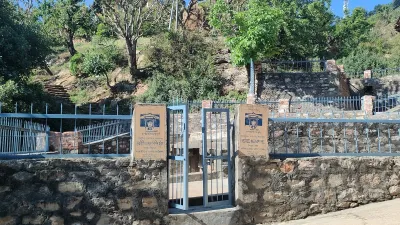Nearly 500,000 people in the rural parts of the United States cannot afford modern plumbing.

In rural America many people are not connected to municipal sewer lines. For the poor in these communities, this means plumbing is a real financial burden. According to a story by Sabrina Tavernise in the New York Times, "Many people have failing septic tanks and are too poor to fix them. Others… have nothing at all."
This is not only a problem for the poor who live without some of the comforts most of us take for granted, it’s also public health issue. Sewage that is not properly disposed of can get into drinking water, which can lead to any number of dangerous diseases including Giardia and Hepatitis A.
Tavernise's article goes on to explain how widespread this issue is: "Nearly half a million households in the United States lack the basic dignity of hot and cold running water, a bathtub or shower, or a working flush toilet, according to the Census Bureau."
Many of the people Tavernise spoke to had little faith that the problem would be solved. While some were connected to city lines, others describe how they had aspired to put in septic systems, but could never afford it. Dorothy Rudolf, a resident of Tyler, Alabama said about the $6,000 it would cost her to put in a septic system: "That was a whole lot of money, and it still is."
FULL STORY: A Toilet, but No Proper Plumbing: A Reality in 500,000 U.S. Homes

Alabama: Trump Terminates Settlements for Black Communities Harmed By Raw Sewage
Trump deemed the landmark civil rights agreement “illegal DEI and environmental justice policy.”

Planetizen Federal Action Tracker
A weekly monitor of how Trump’s orders and actions are impacting planners and planning in America.

Why Should We Subsidize Public Transportation?
Many public transit agencies face financial stress due to rising costs, declining fare revenue, and declining subsidies. Transit advocates must provide a strong business case for increasing public transit funding.

Understanding Road Diets
An explainer from Momentum highlights the advantages of reducing vehicle lanes in favor of more bike, transit, and pedestrian infrastructure.

New California Law Regulates Warehouse Pollution
A new law tightens building and emissions regulations for large distribution warehouses to mitigate air pollution and traffic in surrounding communities.

Phoenix Announces Opening Date for Light Rail Extension
The South Central extension will connect South Phoenix to downtown and other major hubs starting on June 7.
Urban Design for Planners 1: Software Tools
This six-course series explores essential urban design concepts using open source software and equips planners with the tools they need to participate fully in the urban design process.
Planning for Universal Design
Learn the tools for implementing Universal Design in planning regulations.
Caltrans
Smith Gee Studio
Institute for Housing and Urban Development Studies (IHS)
City of Grandview
Harvard GSD Executive Education
Toledo-Lucas County Plan Commissions
Salt Lake City
NYU Wagner Graduate School of Public Service




























